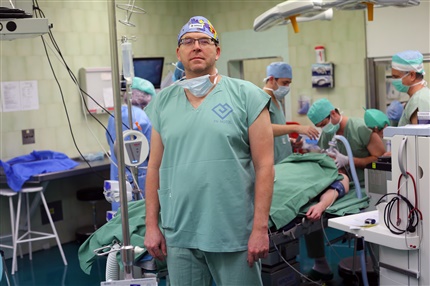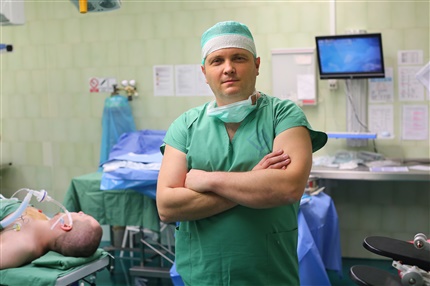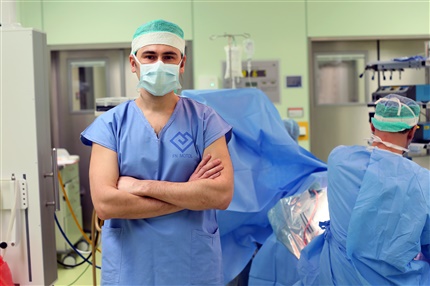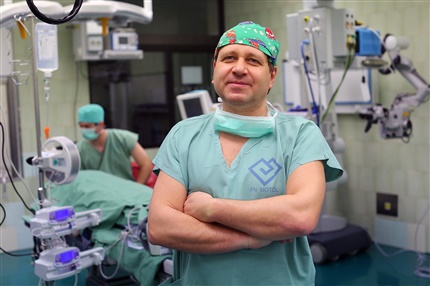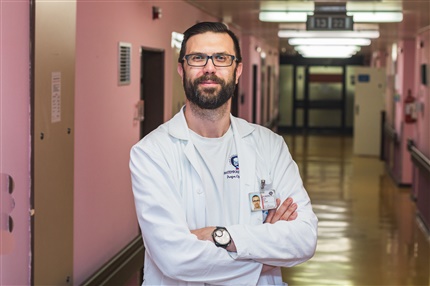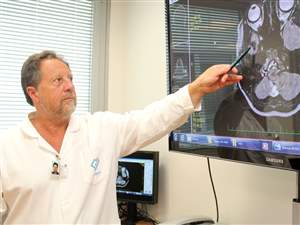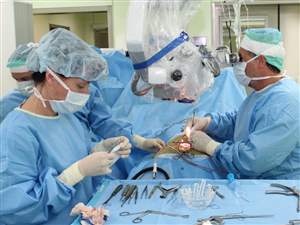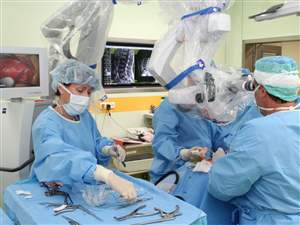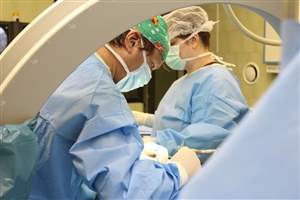A brief overview of the Neurosurgery Specialized Center
The center of Neurosurgery specializes in treating the most complex device in the universe – the human brain – together with the spine and nerve system via acute or planned procedures. Our center is well equipped and performs the most advanced surgeries and procedures on adults and children.
Each year, we admit about 1.200 patients, of which about 1.000 undergo surgery. Our outpatient departments care for more than 5.000 people per year.
The center is divided into Adult and Pediatric sections with specialized outpatient departments and patient wards.
How will your detailed schedule look like? What type of surgeries, procedures, methods or treatment can you observe? Check what can you see by shadowing every member of the mentoring team.
Is this specialty placement ideal for you?
- Is there a more prestigious specialty in medicine than neurosurgery? The Department of Neurosurgery specializes in treating the most complex device in the universe - the human brain. Our neurosurgeons perform the most advanced surgeries and treat all age groups from newborns to elderly patients. That is a unique chance for you to observe and compare different approaches towards children and adults starting from planning the surgery till post operative checks.
- Neurosurgery specialized center is a top-notch surgical facility. You have to be extremely motivated and passionate about this specialty for two reasons, the operations that we perform are often very long and difficult and we require from you responsibility and discipline as our mentors are under a lot of pressure.
Let's take a closer look at the specialties…
Our center specializes in surgical treatment of epilepsy, tumors of the spinal cord and brain, brain and spinal cord blood vessel diseases, inflammation diseases, inborn and acquired anomalies including hydrocephalus and much more. Our work also involves neurotrauma - injuries of the skull, brain and peripheral nerves, along with associated injuries and complications that requires interdisciplinary cooperation. Our patients are provided with full care within the hospital and do not need to be transported to another facility.
The center is equipped with the most advanced technology for neurosurgery. We are proud to be able to use BrainLab during surgeries. This device allows for perfect orientation within the tissue being operated upon and prevents damage to healthy structures. Another device worth mentioning is the fiberscope which is necessary for endoscopic interventions in the brain.
The Pediatric Section is for patients between a few months and 18 years old. It is divided into 2 parts – Patient Wards with an ICU and the Outpatient Department of Pediatric Neurosurgery. We specialize in surgical treatment of epilepsy, into which we have started to implement vagus stimulators. In cooperation with the Department of Neurology, we use the top diagnostic and navigational methods, such as electrocorticography, MRI-navigated resectioning and decompressive craniectomy in patients with ischemic stroke.
The Standard Ward Department is equipped with 12 beds, with a maximum of 3 beds in one room. The Intensive Care Unit has 3 rooms, each with 2 beds. A family member is allowed to stay with a child patient overnight if the child is younger than 6 years old, and in some cases with a child older than 6.
The Adult Section is also divided into 2 departments – the Outpatient Department of Adult Neurosurgery and Patient Wards, where there are 11 beds in standard wards and 6 beds in the ICU. The Intensive Care Unit is permanently surveilled by security cameras as well as nurses.
Our articles are published in both Czech and foreign magazines. Our doctors and nurses often participate as speakers in scientific congresses and symposiums. Within the University Hospital in Motol, we organize seminars for neurologists and physiotherapists.
Who do we take care of?
We take care of patients from birth throughout their entire lives. We even examine mothers and their babies before the babies are born. Our center conducts 50% of all surgeries for tumors of the central nervous system in children in the Czech Republic, as well as the highest number of surgeries for inborn skull and facial disorders in children in the country.
The care we provide includes diagnostic, consultative and outpatient care. We hospitalize patients with severe diseases of the central nervous system. We care for patients with neurological traumas; primary and secondary tumors of the brain and spinal cord; brain and spinal cord blood vessel and inflammation diseases; inborn and acquired anomalies; hydrocephalus, including problematics of dementia caused by normotensive hydrocephalus; degenerative diseases of the cervical, pectoral and lumbar spinal cord; or peripheral nerve disorders.
In the Outpatient Department for Children, our main focus is on the treatment of tumor diseases of the brain and the spinal cord, surgical solutions for inborn and acquired central nervous system diseases including hydrocephalus, skull base and craniofacial surgeries, treatment of syndromic and nonsyndromic synostosis, neurotraumatology and the surgical treatment of epilepsy and spasticity.
Our methods and procedures
We constantly implement new methods and procedures. We would like to emphasize the following ones:
- Implementation of a baclofen pump for treatment of generalized spasticity in children and adults
- Surgical treatment of craniosynostosis that allows us to treat some of the most severe deformities.
- Mini-invasive approaches to the treatment of degenerative diseases of the spine
- Vertebroplasty and stentoplasty for the treatment of osteoporotic fractures of the spine, provided in cooperation with the Radiology and Diagnostic Imaging Specialized Center.
- Radiofrequency neuromodulation in vertebrogenic and peripheral nerve pain conditions
- Treatment for lesions in the skull base and face, provided in cooperation with maxillofacial surgeons, ENT specialists and plastic surgeons. These procedures cannot be provided almost anywhere else, as a multi-field approach is necessary.
- Reanimation for facial paralysis using dynamic and static procedures and reinnervation for facial paralysis using the cross-facial method. We are the only department within the Czech that provides these.
- Highly specialized multi-modal monitoring of patients with craniocerebral injury within the neurotraumatology program
- Development of a surgical program and endovascular techniques within the neurovascular program in cooperation with the Radiology and Diagnostic Imaging Specialized Center.
- Decompressive craniectomy for patients with ischemia in cooperation with the Neurology Specialized Center.
- Frame and non-frame stereotaxis that we use for insertion of deep brain electrodes and for brain biopsies
- Videoconferences in which the surgery is recorded with a camera (including a connection with the microscope) and can be streamed live
How does the usual schedule look like?
- You will spend at least 25 hours each week in the hospital, though the hours differ for each student. The specific number of hours depends on your mentors’ shifts and on your approach to the specialty. You might work for 30 or more hours per week.
If you are not sure whether this choice is suitable for you, don’t hesitate to contact us. We will discuss your experience and motivation and come up with the best solution for you.

